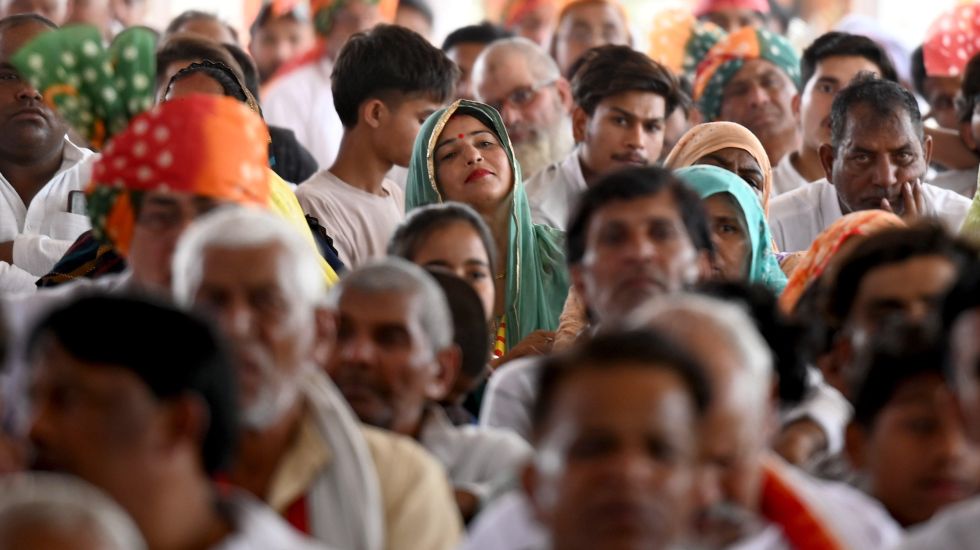Parliamentary elections begin in India on Friday (local time). In the world's largest poll, some 970 million eligible voters were called to vote at more than one million polling stations in the lower house (Lok Sabha), which has more than 500 seats. Opinion polls predict a victory for Prime Minister Narendra Modi's Hindu nationalist BJP party. This means that the 73-year-old leader, who is very popular among the people, can rule for another five years after ten years in power. Due to the size of the country – India is the world's most populous country with 1.4 billion people – the election lasted six weeks and took place in seven phases.
Incidents at several polling stations
Voting began on Friday in 102 of the total 543 constituencies, as announced by the election commission. The world's largest democracy has 36 federally administered states and territories. The overall voter turnout that day was about 60 percent. A security guard was killed in an explosion near a polling station in the Chhattisgarh region where Maoist insurgents are strong, local news agencies said. PTI reported.
In Manipur state, incidents were reported at several polling stations, including gunmen and voting machines being smashed. India Time write. In temperatures that sometimes exceeded 40 degrees, voters stood in queues and proudly displayed their index fingers marked with indelible ink after casting their votes – from the Himalayas to the contested Kashmir Valley to tropical islands.
Modi and the BJP are confident of winning. Under his leadership, India became the fifth largest economic power to attract investors. Modi invested heavily in modern infrastructure such as roads, express trains and airports. But the opposition complains of uneven growth. The rich are favored, while unemployment is high and corruption is rampant. Plus inflation. Critics also accused Modi of using authorities specifically to target the opposition. Before the election, several opposition leaders, among others, were arrested on corruption charges.
India's weight is increasing
According to observers, Modi also benefits from the fact that the opposition is weak and fragmented. “The Indian opposition has been busy with itself for a decade and has no strategy for this election,” said Elias Marini Schäfer of the Konrad Adenauer Foundation in New Delhi. Modi's biggest challenger was Rahul Gandhi of the Congress Party, who had ruled for most of India's independence from Britain in 1947 – until Modi and the BJP ousted him from power in 2014. Since then, India's influence on the world stage has increased significantly. Western countries want to cooperate more closely with China in dealing with an increasingly aggressive China.
Modi concentrates power in his office, weakens the independence of public institutions such as the judiciary and media, builds a cult of personality around himself and pursues his party's ideological goals with ruthless efficiency, the magazine wrote Foreign affairs ahead of the election. “There is no more democracy in India,” Congress leader Rahul Gandhi recently commented.
Modi, on the other hand, has reassured his supporters with his vision of making the subcontinent a rich and globally valued nation with Hinduism at the center of its national identity. Critics complain that religious minorities are increasingly becoming second-class citizens. Opposition leader Gandhi worried: “They want to eliminate the democratic process so that they can destroy all other ideas.” To achieve this goal, Modi's party is seeking changes in the constitution. However, this would require a two-thirds majority in parliament – which observers say would be difficult. dpa
Oliver Schulz in conversation with Ben Krischke
Politics Podcast Cicero: “When we say: 'Understanding India' – which India do we mean?”

“Subtly charming web junkie. Unapologetic bacon lover. Introvert. Typical foodaholic. Twitter specialist. Professional travel fanatic.”







